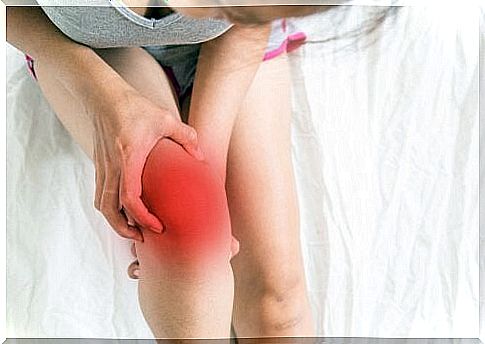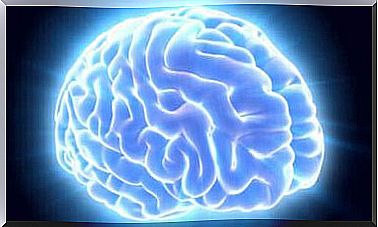Negative Emotions And Rheumatoid Arthritis: What Is Their Connection?

Rheumatoid arthritis is a disease that affects all joints in the body. When it does appear, it usually causes several very bothersome symptoms. These are: persistent pain, inflammation, loss of mobility and stiffness in affected parts. Its causes are currently unknown. However, some research has established a relationship between negative emotions and rheumatoid arthritis in its course and progression.
The importance of psychology in the course of this disease has already begun to be considered at the beginning of the 20th century. However, it was not seriously studied until 1950. In that year rheumatoid arthritis was gradually classified as one of the most important psychosomatic disorders. From that moment on, research on this topic became more abundant.
In this article, we will study the data obtained so far on the relationship between negative emotions and rheumatoid arthritis. We will also learn about some of the biggest characteristics of this disease, in addition to some tips on how to live the best with it.
Symptoms of rheumatoid arthritis
We are now going to look at some of the symptoms and some of the most common features of this disease. All of them are found in the main joints of the body. The most affected are normally those of the wrists and those found in the fingers. However, this alteration can occur anywhere in the body where several bones meet.

So, for example, it is possible to find symptoms of rheumatoid arthritis in the following places:
- Elbows
- Knees
- Shoulders
- Neck
- Mandible
- Pegs
- Feet
- Hips
Depending on the person suffering from the disease, the symptoms produced can vary widely. The most common are: swelling, lack of mobility, burning, hypersensitivity and pain.
Now let’s study each of these points.
1. Swelling
The first symptom of rheumatoid arthritis is often swelling in the affected joints. These can be much greater during an acute episode of the disease. When the disorder is not severe, the swelling may appear in isolation. In more severe cases, it is normally accompanied by pain.
2. Lack of mobility
In general, the increase in the size of the joints prevents us from moving them properly. When this symptom is particularly severe, it can be very difficult for the person to perform certain actions in their normal life.
3. Burn
Symptoms of rheumatoid arthritis are often accompanied by a very bothersome burning sensation in the affected areas. Usually, this is only a small source of discomfort. However, if we add this sensation to the list of symptoms, the disease can become an obstacle in the lives of those who suffer from it.
4. Hypersensitivity
In addition to the above points, people with rheumatoid arthritis also suffer from increased tenderness in the affected joints. All the sensations will therefore be amplified. It will also affect the increase in pain, the symptom we will now look at.
5. Acute pain
The worst symptom that people affected by this disease describe is the sharp pain they experience with every movement. They may even feel a slight knock in the joints. This can end up crippling them to the point of preventing them from leading a normal life.

Relationship between negative emotions and rheumatoid arthritis
So what is the relationship between negative emotions and rheumatoid arthritis? The latest research has shown that certain emotional states can cause more problematic symptoms to increase. In addition, they would directly increase the probabilities of suffering from this problem.
Of all the emotions that we can feel, the ones that are most related to this problem are depression, anxiety, and anger. And, on the contrary, characteristics like efficacy or resistant personality are attached to less pronounced symptoms when this disease is present.
In reality, there is no single cause for this disease. However, the relationship between negative emotions and rheumatoid arthritis is particularly well documented. Many doctors consider that the best treatment to combat this problem is to work on the feelings of the patients.
Thus, improving understanding and emotional expression can be very effective in reducing pain, among other symptoms. Even if these do not go away completely in the majority of cases, many patients manage to improve their quality of life considerably by training their emotions.
It is for this reason that a good confrontation of this disease is essential to overcome it. If you are suffering from these symptoms or know someone who does , do not hesitate to see a mental health professional. It can help you fight off the more acute symptoms of this problem.










